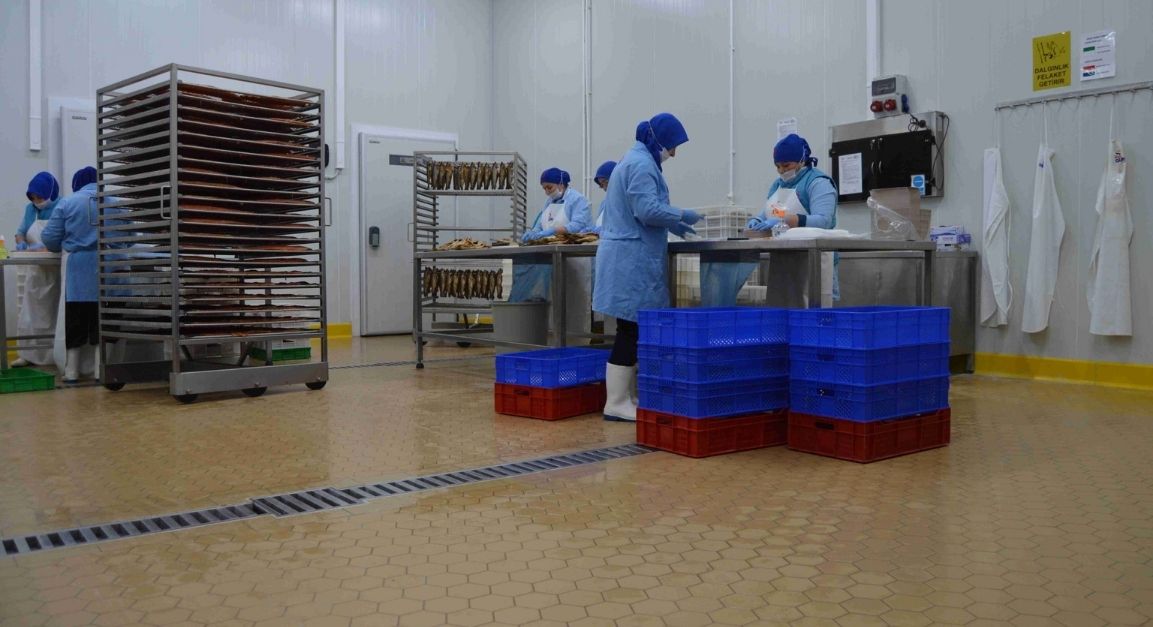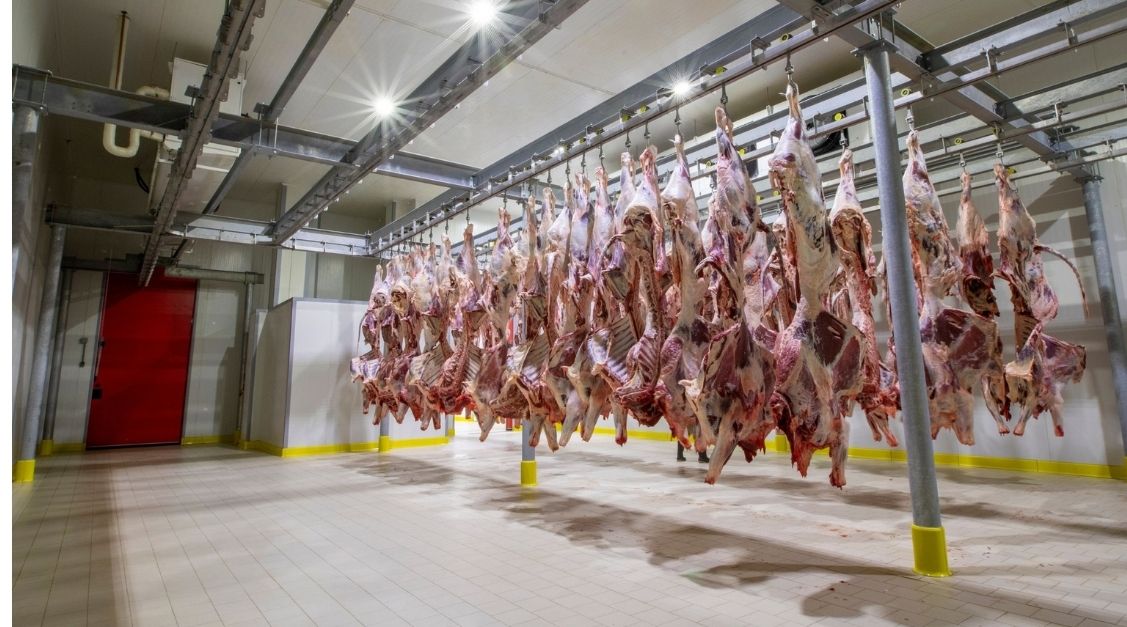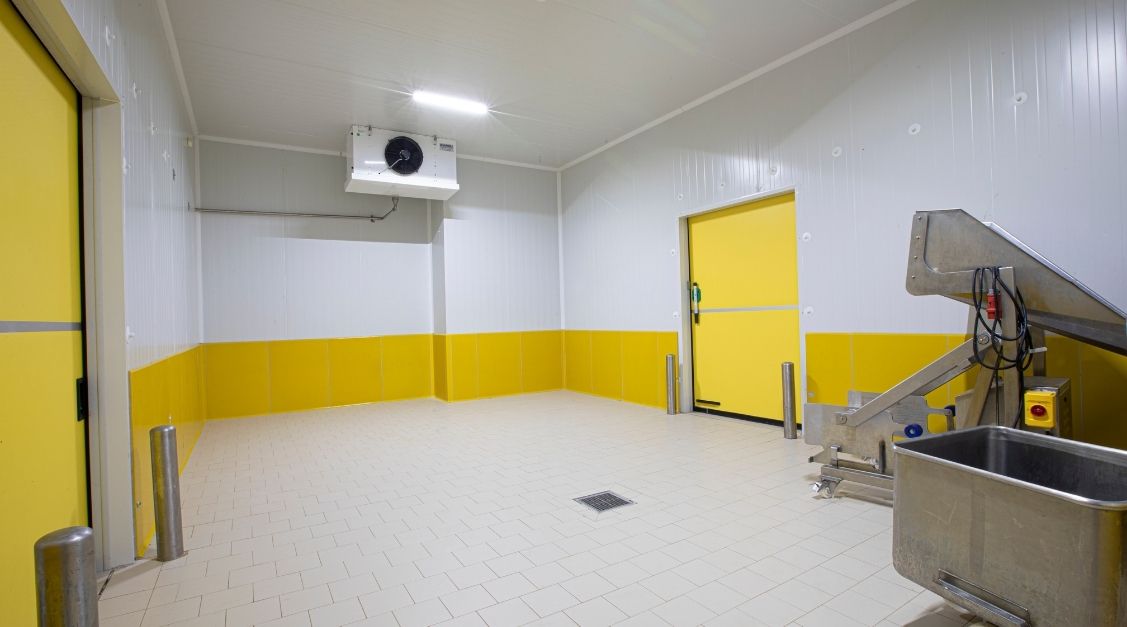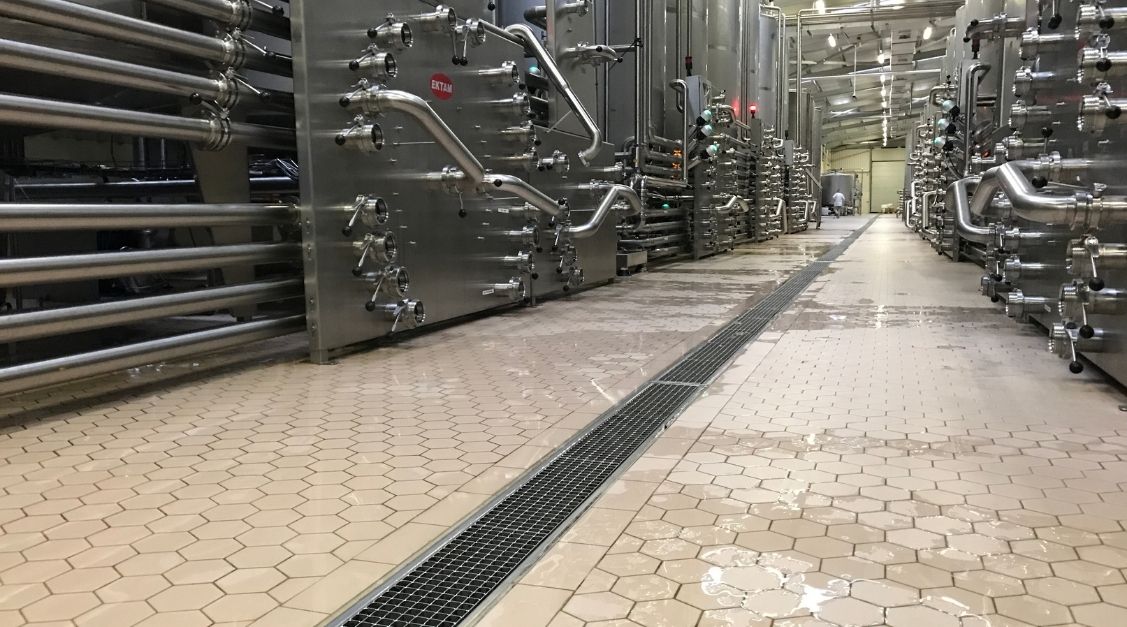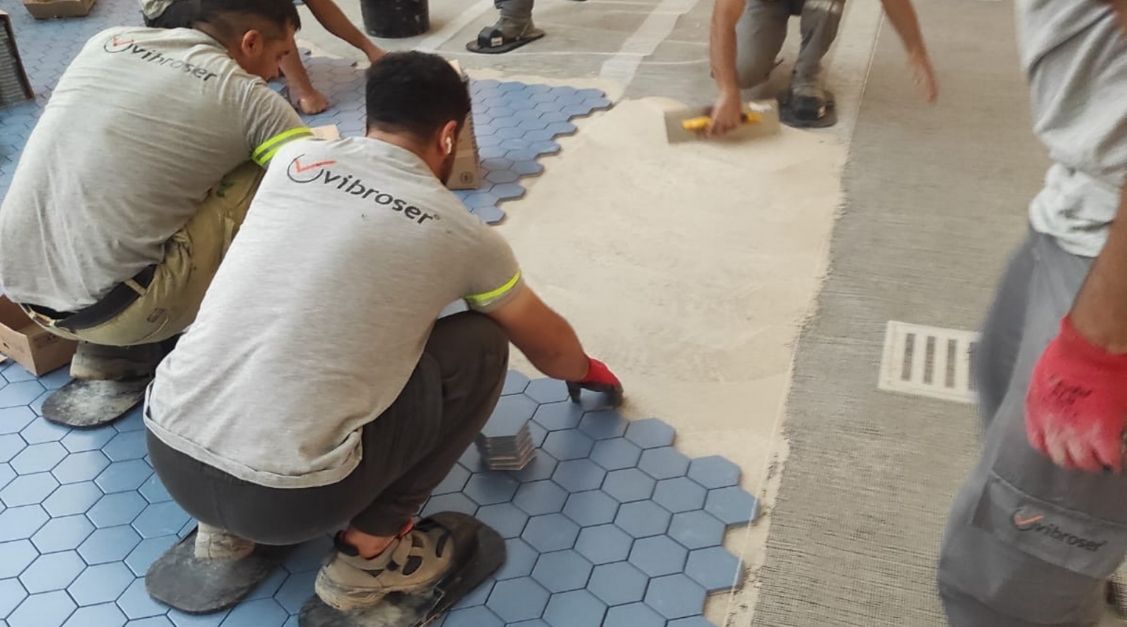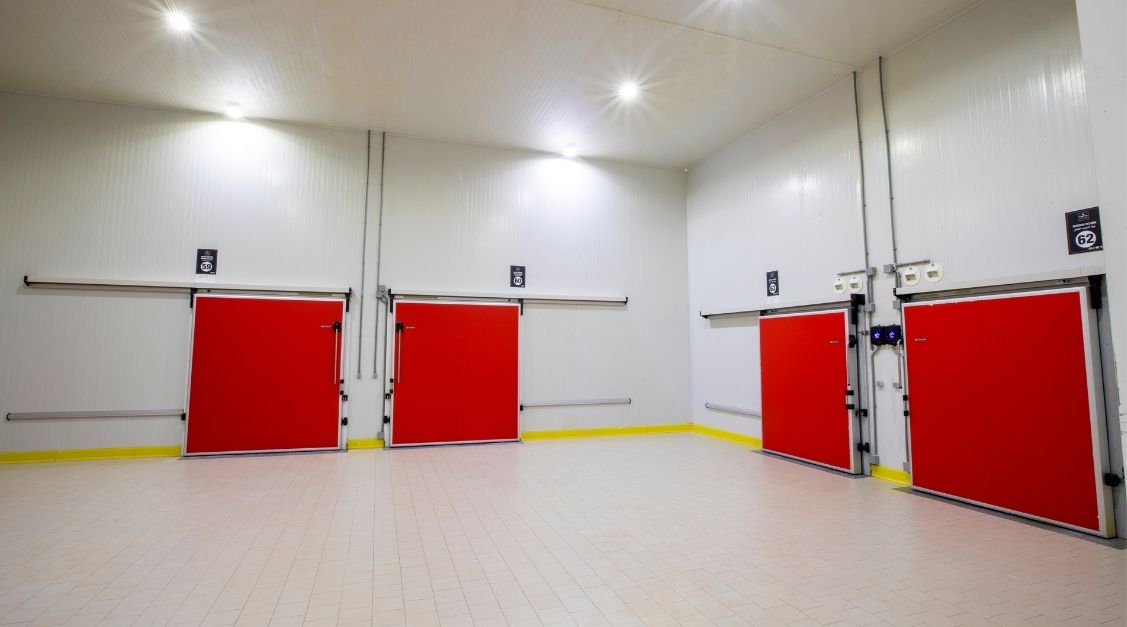Seafood processing plants play a critical role in the food industry, provide processed seafood products to consumers worldwide. However, the processing of seafood products involves the use of various chemicals, acids, and other hazardous materials that require specific flooring solutions to ensure safety, cleanliness, and durability. For this reason, seafood processing plants require special flooring solutions that can withstand the harsh conditions of this industry.
Problems and Solutions
Seafood processing plants have a unique environment that presents various problems in terms of flooring requirements. One of the primary problems is having high levels of moisture in these facilities. The moisture can lead to the growth of bacteria and other contaminants that can compromise the safety of the products that are processing in the plant. Additionally, seafood processing plants use various chemicals and acids, which can corrode the seafood processing plant floors and make it unsafe for employees to work.
To address these issues, seafood processing plants require specific flooring solutions that are durable, resistant to wear and tear, and can withstand the corrosive effects of chemicals and acids. The best flooring solutions for seafood processing plants are heavy-duty tiles and acid-proof tiles.
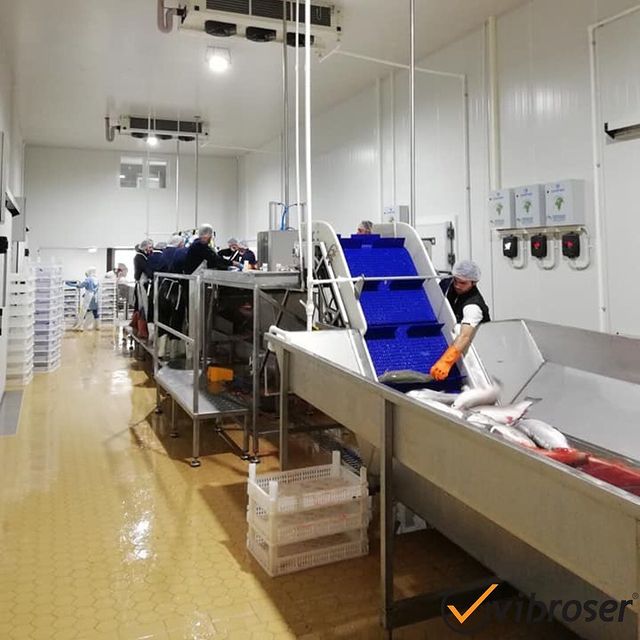
Heavy Duty and Acid Proof Tiles
Heavy-duty tiles are made of materials such as porcelain, ceramics, or natural stone, which make them highly durable and resistant to heavy foot traffic. They are also slip-resistant, which is crucial to prevent accidents in the workplace. Acid-proof tiles, conversely, are resistant to chemicals and acids, which is essentially in seafood processing plants where acids are commonly used
Heavy-duty tiles are made of materials such as porcelain, ceramics, or natural stone, which make them extremely durable and resistant to heavy foot traffic. They are also slip-resistant, which is crucial to prevent accidents in the workplace. Acid-proof tiles, on the other hand, are resistant to chemicals and acids, which is important in seafood processing plants where acids are commonly used.
Heavy-duty and acid-proof tiles are also easy to clean and maintain, essential in keeping the environment safe and hygienic. These tiles can withstand high-pressure cleaning, which is necessary to remove contaminants and chemicals from the floor.
Hygienic Wall Protection Products
In addition to flooring solutions, hygienic wall protection products are also essential in seafood processing plants. These products are designed to protect walls from bacteria, moisture, and other contaminants. They are easy to clean and maintain, which is important in keeping the environment safe and hygienic.
Hygienic wall protection products are available in a variety of materials, including PVC, stainless steel, and fiberglass. PVC is a popular choice because it is easy to install and maintain. Stainless steel is also a good option because it is durable and resistant to corrosion. Fiberglass is another material that is commonly used in seafood processing plants because it is lightweight and easy to clean.
Hygienic wall protection products are essential in seafood processing plants because they prevent bacteria and other contaminants from spreading throughout the facility. These products also protect the walls from moisture, which can cause damage to the walls and lead to the growth of bacteria.
Hygienic Drainage Systems
Hygienic drainage systems are also essential in seafood processing plants. These systems are designed to remove excess water and other liquids from the floor, which helps to prevent slips and falls. They are also important to prevent the growth of bacteria and other contaminants.
Hygienic drainage systems are available in a variety of materials, including stainless steel and PVC. Stainless steel is a popular choice because it is durable and resistant to corrosion. PVC is also a good option because it is lightweight and easy to maintain.
Hygienic drainage systems are designed to prevent the accumulation of water and other liquids on the floor, which can lead to the growth of bacteria and other contaminants. These systems are also designed to be easy to clean and maintain, which is essential in keeping the environment safe and hygienic.
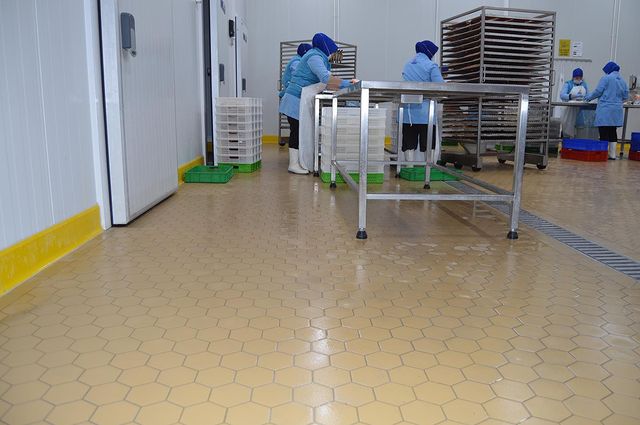
Pros
- Seafood processing plant floors are designed for easy cleaning and sanitation, ensuring that the facility is always in compliance with strict food safety regulations.
- These floors are often made of durable materials that can withstand heavy foot traffic and equipment use.
- Slip-resistant coatings can be applied to seafood processing plant floors, which reduces the risk of work accidents and injuries.
- Specialized flooring can be customized to meet the unique needs of a seafood processing plant, such as resistance to corrosive agents and extreme temperatures.
- Properly installed seafood processing plant floors can contribute to a more efficient and productive workplace.
Cons
- The cost of installing specialized flooring in a seafood processing plant can be high, especially if additional features or customizations are required.
- The installation process may require downtime, which can be disruptive to the operation of the facility.
- If not properly maintained, seafood processing plant floors can become a breeding ground for bacteria and other pathogens, potentially compromising food safety.
- Certain types of flooring materials may be more challenging to clean than others, that require more time and resources to maintain.
- In the event of damage or wear and tear, repairing or replacing seafood processing plant floors can be costly and time-consuming.
Vibroser’s Flooring Solutions
Vibroser is a leading provider of flooring solutions for seafood processing plants. Vibroser offers a range of flooring solutions that are specifically designed for the seafood processing industry. Vibroser’s flooring solutions are made of high-quality materials that are resistant to water, chemicals, and extreme temperatures. Vibroser’s flooring solutions are also slip-resistant, this feature makes them safe for employees in workplaces.
Vibroser’s flooring solutions are easy to clean and maintain, reduce the risk of bacterial growth and contamination. Vibroser’s flooring solutions are also customizable, that allows seafood processing plants to choose the flooring solution that completely suits their needs. Vibroser’s flooring solutions are designed to meet the highest hygiene and safety standards, ensuring that seafood processing plants can maintain a clean, safe, and hygienic environment.

